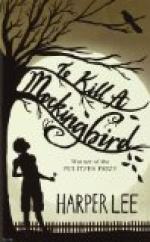|
This section contains 848 words (approx. 3 pages at 300 words per page) |

|
Real and False Heroism in "To Kill a Mockingbird" and Other Texts
Summary: Heroism has been demeaned by a media that praises unworthy heros. This theme is explored in "We can be Hereos," a film by Laura Waters. True heroism is the type described in Harper Lee's novel "To Kill a Mockingbird" or the real-life heroism of the man who stood up to tanks in Tiananmen Square in 1989.
We can't all be genuine heroes; a real hero is reserved for that person set apart; that person who towers over the rest of us yet doesn't make us feel small. A hero will face challenge nobly and altruistically, revealing insurmountable courage. Regrettably, the word `hero' has been so frequently demeaned throughout time by the media to describe unheroic people that it no longer possesses such power as it once did.
Today, heroism can be brashly shaped to become anything the media wants it to be and disposed of just as quickly; it's brief, it's celebrated, and it's hollow. As hollow as fame. A contemptuous series that conveys this abused and shallow form of heroism is We Can Be Heroes, produced by Laura Waters. However unsullied and meaningful heroism still exists. This is conveyed through the lasting admiration Jean-Louise feels towards her father Atticus Finch in the novel...
|
This section contains 848 words (approx. 3 pages at 300 words per page) |

|


